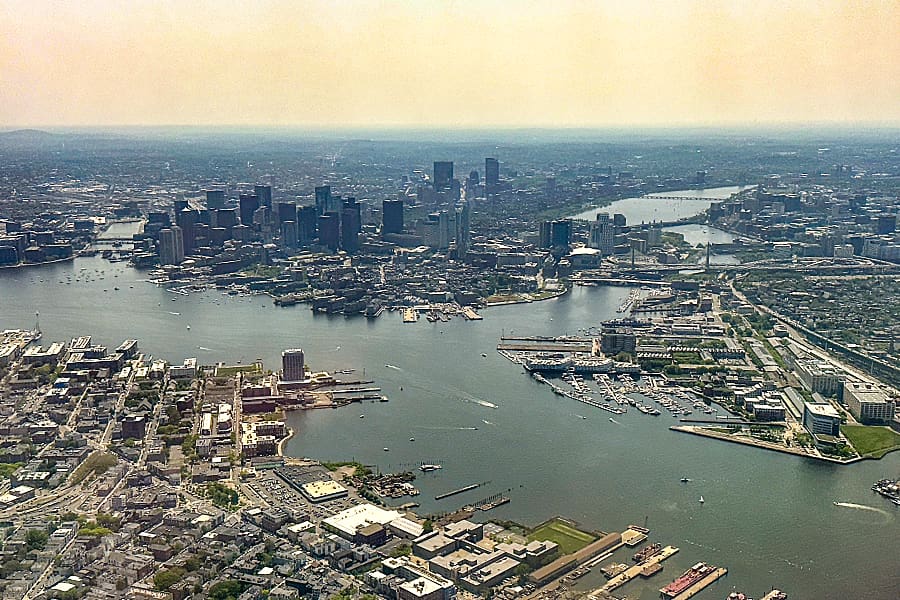- Home
- News
- Recent News
- Artificial Intelligence and Community-Oriented Decision-Making
Artificial Intelligence and Community-Oriented Decision-Making for the Climate Crisis
Impacts of climate change, such as mortality due to floods, droughts, and storms, are much greater for highly vulnerable regions. More than 3.3 billion people are living in countries classified as very highly or highly vulnerable.

Low-lying waterfront Boston neighborhoods, such as Dorchester and East Boston, will be impacted by coastal and riverine flooding due to climate change-induced sea level rise during storm events and high tides. This is a major climate hazard for coastal areas.
Globally, a billion people are projected to be at risk from coastal-specific climate hazards in low-lying areas. One of the severe threats of coastal change is the frequency and magnitude of coastal disasters due to sea level rise. For example, an increase in the frequency and intensity of tropical cyclones and floods in low-lying flat land, such as Bangladesh, has devastated local agriculture, its activities, and put local communities at risk over the past few years.
One of UMass Boston’s Grand Scholarly Challenges is on “Climate Equity and Urban Coastal Areas.” It focuses on “… a clear, urgent environmental challenge that touches upon health and wellness, our economic future, and the very livelihood affecting every individual, family, and community in Boston and beyond. UMass Boston will research, design, and implement leading-edge, equitable, and restorative adaptations to … climate change.”
Artificial intelligence (AI) has the potential to address climate adaptation in vulnerable coastal communities. I am leveraging information systems (IS) and AI technologies (e.g., big data and machine learning) for novel and sustainable practices within the context of social, business, and policy domains to achieve sustainability-related objectives.
My team, consisting of current and former UMass Boston PhD students, and I are developing a coastal adaptation artifact that analyzes climate adaptation datasets, including social data from communities vulnerable to coastal hazards in the greater Boston area in the United States. This research aims to provide a more comprehensive coastal adaptation decision-making system that integrates the coastal communities’ voices.
The research team thinks that unless inclusive decision-making and equitable collaboration with climate change-impacted vulnerable communities is given priority, adaptation strategies and actions can worsen social inequities. They have identified key community stakeholders, needs, and actions and are developing a coastal resilience engine for community members and policy makers. They are incorporating AI into a flexible analytical approach to assess coastal community needs and demands from social data.
The prototype being developed captures and stores unstructured data, for example, text data from social media platforms. The collected data undergoes systematic classification using topic modeling and AI-based techniques. The classified content illustrates key climate adaptation themes that can be employed by community members or policy makers to take decisions.
The research approach can accommodate various sets of social attributes to help understand coastal risks in vulnerable communities. The outcomes of this research can help community members and policy makers understand and develop robust sustainability and climate focused decisions using a coastal resilience decision approach. The research will advance coastal adaptation research with a focus on climate justice using big data analytics and AI.

Professor of Management Information Systems